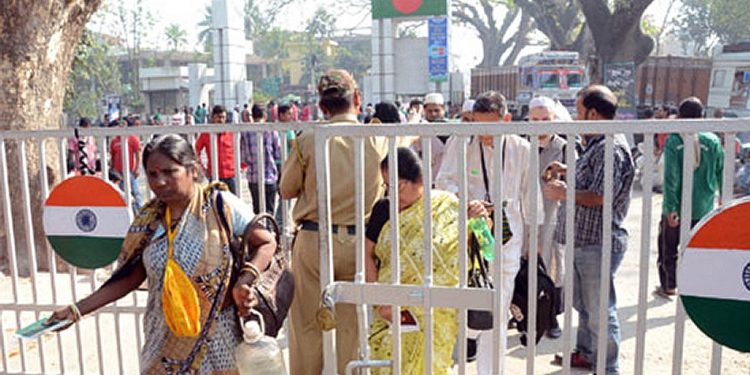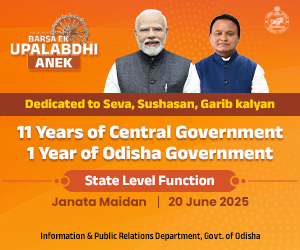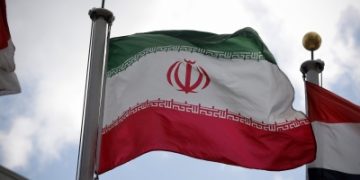Jayakrishna Sahu
Amid controversy and conflict, opposition and agitations, the Citizenship (Amendment) Bill, 2019, has become an Act, with the President signing it December 12. The Citizen (Amendment) Act, 2019 (CAA) has made some additions to the Citizenship Act, 1955. The most important of these is the granting of citizenship to illegal migrants of Hindu, Sikh, Buddhist, Jain, Parsi or Christian communities from Afghanistan, Bangladesh or Pakistan, who entered India on or before December 31, 2014. It also reduced the minimum period of residence or service in India to qualify for citizenship from 11 years to 5 years.
The Union government justifies the CAA on grounds that Pakistan, Afghanistan and Bangladesh are Islamic countries where Muslims constitute the majority, and that in those countries minorities have been facing persecution on the basis of religion; it makes these minorities deserving of special consideration and protection on humanitarian grounds.
Violent protests have been organised over the new Act in parts of Assam, West Bengal and the North East; it has now spread to Delhi. Agitators in Assam have expressed fear that CAA is a potential threat to their language and culture, if the large number of illegal Bengali migrants settled there are given citizenship. The population of Assam is 3.3 crore, and the number of illegal migrants in the state, according to the latest NRC findings, is only 19 lakh. Can 19 lakh migrants change the demography and cultural identity of the 3.3 crore Assamese?
More important, Clause 6B(4) of CAA clearly states: “Nothing in this section shall apply to tribal areas of Assam, Meghalaya, Mizoram or Tripura as included in the 6th schedule to the constitution and the area covered under the inner line notified under the Bengal Eastern Frontier Regulation, 1873.”
The CAA is being strongly criticised mostly on grounds that it is unconstitutional, as it violates right to equality and secularism. First, let us consider whether the CAA violates provisions of Article 14. “The State shall not,” Article 14 says, “deny to any person equality before the law or equal protection of the law within the territory of India.” If so, how can Muslim migrants from the three neighbouring countries be prejudicially discriminated by the State through enactment of a law?
Let us analyse the broad meaning of “equality” given from time to time by the Hon’ble Supreme Court of India, which is the final interpreter of the Constitution and arbitrator on any constitutional dispute.
In the State of WB Vs Anwar Ali case (AIR 1952 SC 75), the Supreme Court held: “The principle underlying the guarantee in Article 14 is not that the same rules of law should be applicable to all persons within Indian territory or the same remedies should be made available to them irrespective of differences of circumstances.”
In Narain Das Vs Improvement Trust (AIR 1972 SC 865), the SC held: “Article 14 guarantees equality to all persons in similar circumstances, both in regards to privileges and liabilities . . . The principle of equality does not absolutely prevent the State from making differentiation between persons and things. The State has always the power to have classification on the basis of rational distinctions relevant to the particular subject to be dealt with.”
In KR Lakshman Vs Karnataka Electricity Board [(2001) 1 SCC 442], the SC held: “All that Article 14 guarantees is similarity of treatment and not identical treatment. It does not prohibit reasonable classification.” This was only reiteration of the stand SC took in Asutosh Gupta Vs State of Rajasthan (AIR 1951 SC 318).
In T Devadasan Vs Union of India (AIR 1964 SC 179), the SC clarified: “What is meant by equality in Article 14 is equality among equals.”
In the landmark Maneka Gandhi Vs Union of India case [(1978)1 SCC 248] the SC held: “Equality is a dynamic concept with many aspects and dimensions, and it can’t be imprisoned within traditional and doctrinaire limits. The principle of reasonableness – legally as well as philosophical – is an essential element of equality.”
In Amrita Vs Union of India [(2005)13 SCC 721], the SC held: “What Article 14 forbids is discrimination between persons who are substantially in similar circumstances or conditions. It does not forbid different treatment of unequals.”
In Government of AP Vs J P Rao, the SC emphatically declared: “Wooden equality is not possible.”
In UP Power Corporation Ltd Vs Ayodhya Prasad [(2008)10 SCC 139], the SC made it clear, “It is well settled that equals can’t be treated unequally and unequals can’t be treated equally. Treating of unequals as equals would offend the doctrine of equality enshrined in Articles 14 and 16 of the Constitution.”
These decisions of the Supreme Court make it amply clear that the Parliament has done nothing wrong by enacting a law favouring non-Muslim immigrants from the three neighbouring Islamic countries. The Muslim persecutors and the non-Muslim victims of the three Islamic countries can never be treated as equals. Keeping illegal Muslim-immigrants away from the purview of the CAA and giving the benefits only to the six classes of immigrants, therefore, is absolutely rational, legal and constitutional.
Now let us examine whether the CAA violates our constitutional value of secularism. Although we have placed secularism on a high pedestal, and even the SC has held that this is part of the basic structure of the Constitution, it was nowhere mentioned in the original Constitution. It was inserted into the Preamble only in 1976 through the 42nd Amendment.
The core concept of our secularism is that the State won’t have any religion and that it will not discriminate on the grounds of religion. Article 25 prohibits discrimination of “any citizen” on the grounds of religion, race, caste, sex or place of birth. This fundamental right, though, is not guaranteed to foreigners or illegal immigrants. Hence, CAA does not violate the constitutional concept. It is, therefore, not unconstitutional.
The writer is an advocate based in Bolangir.







































